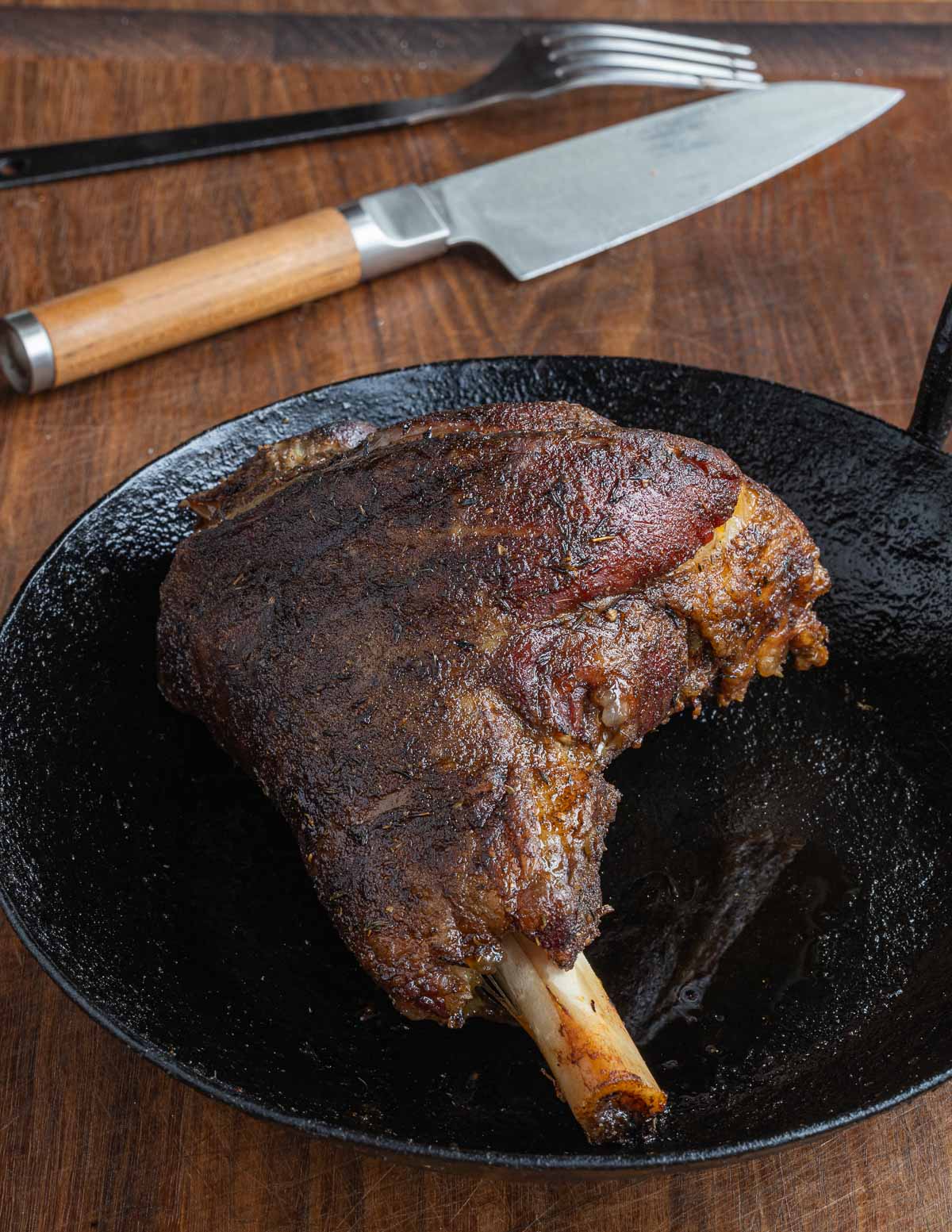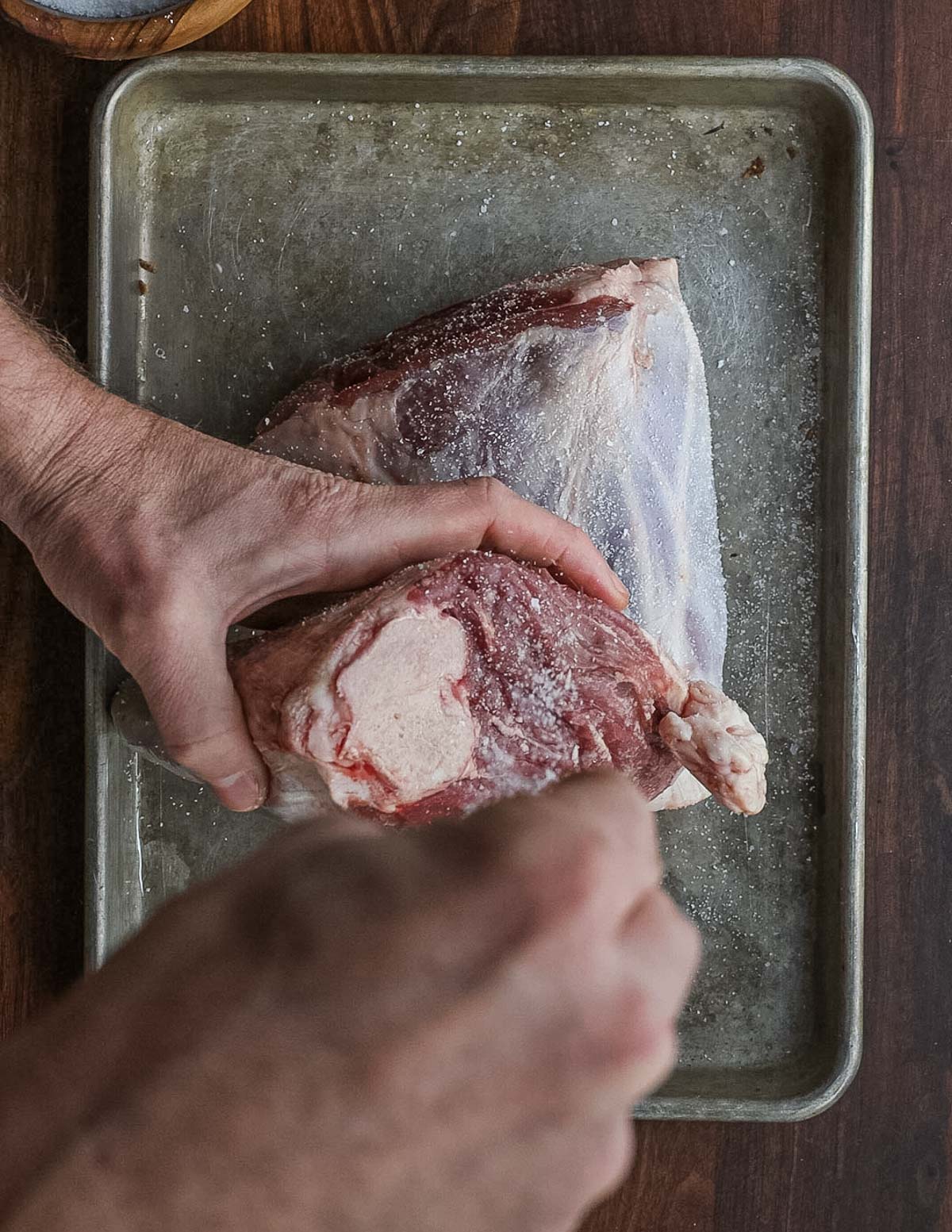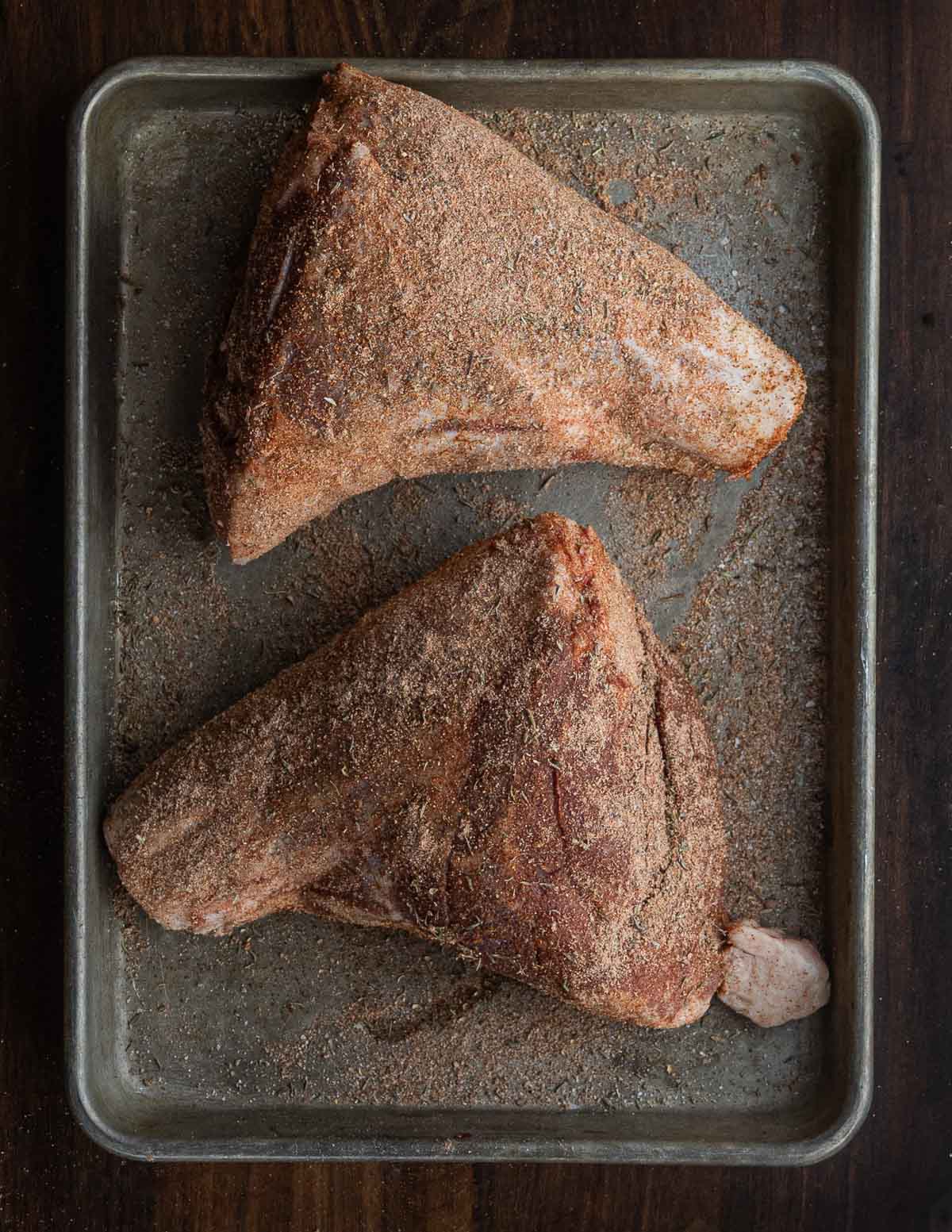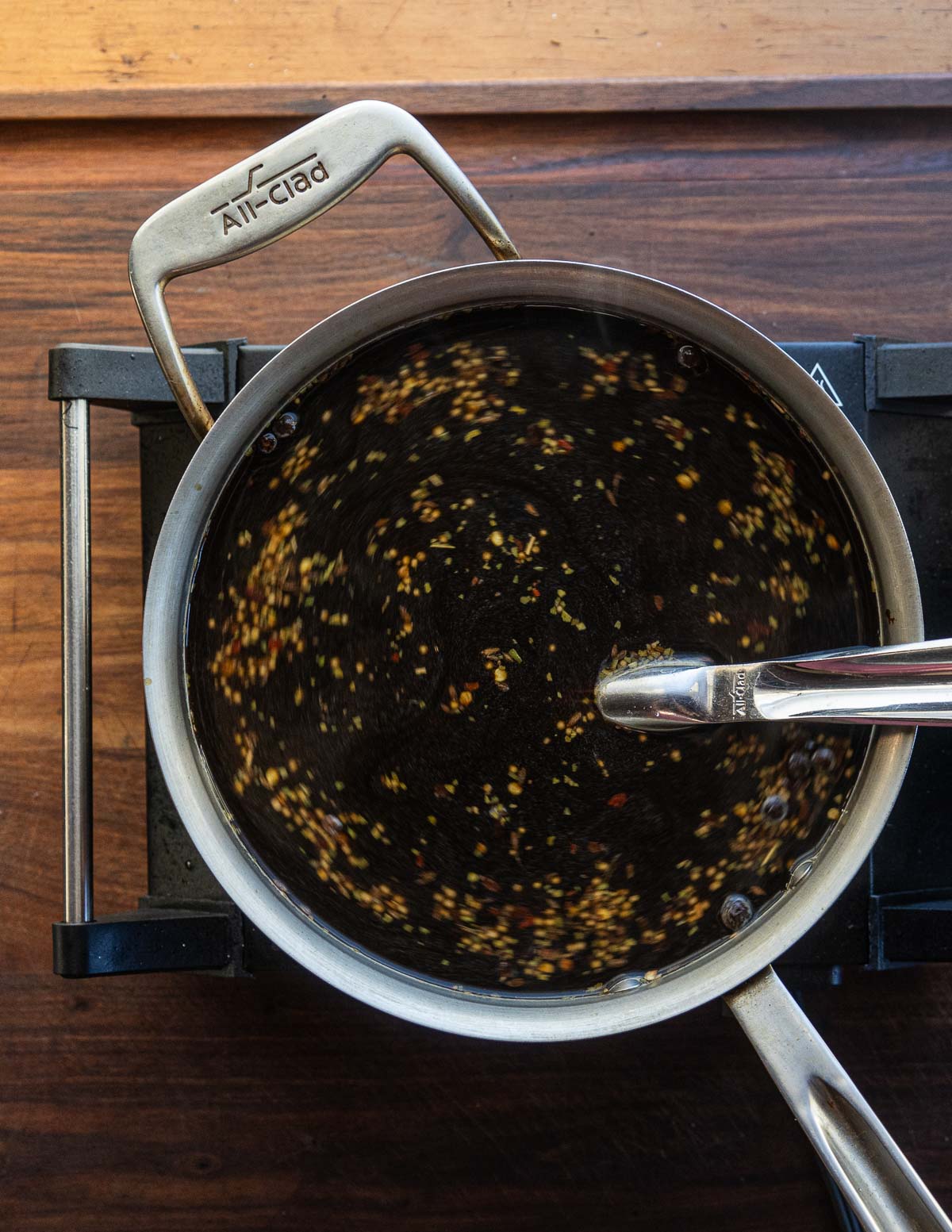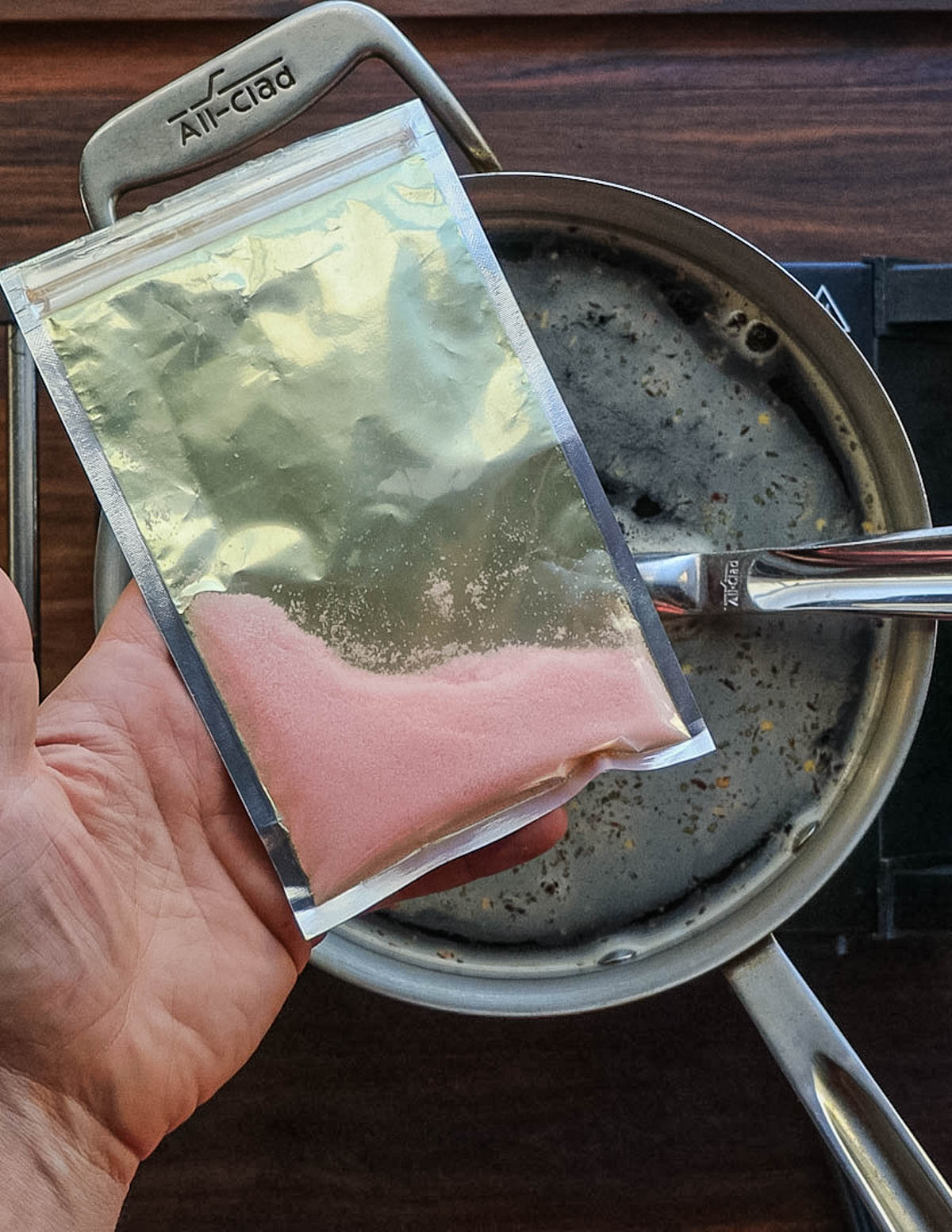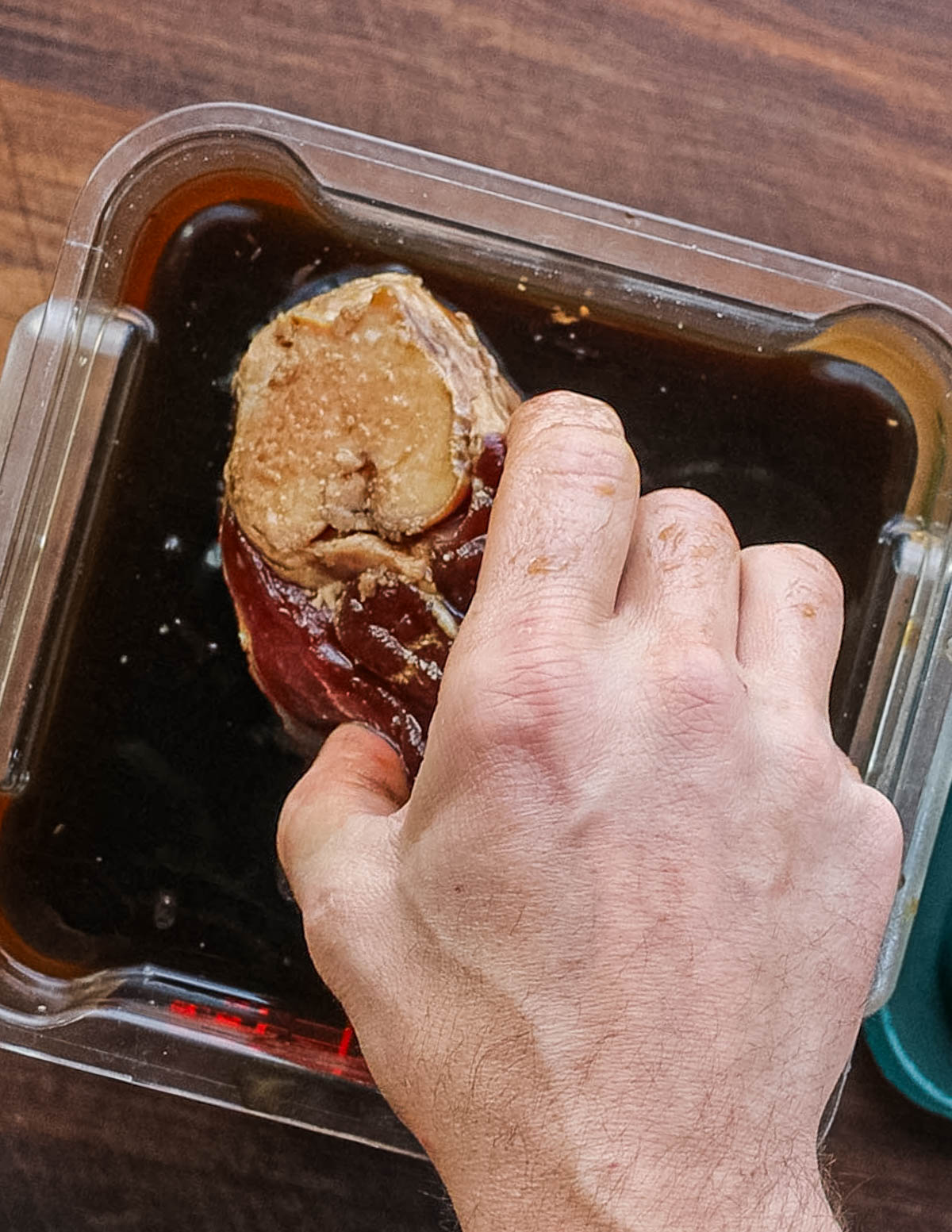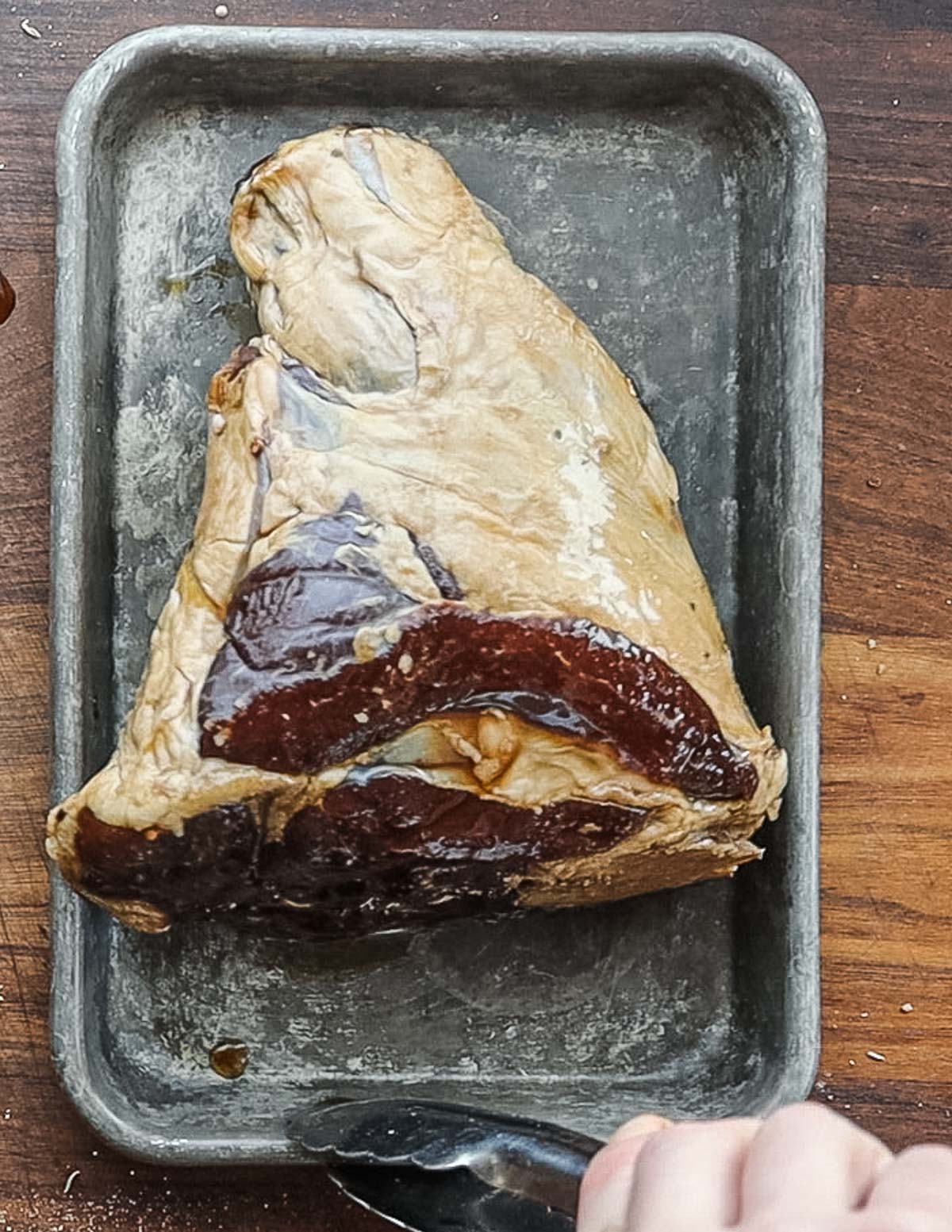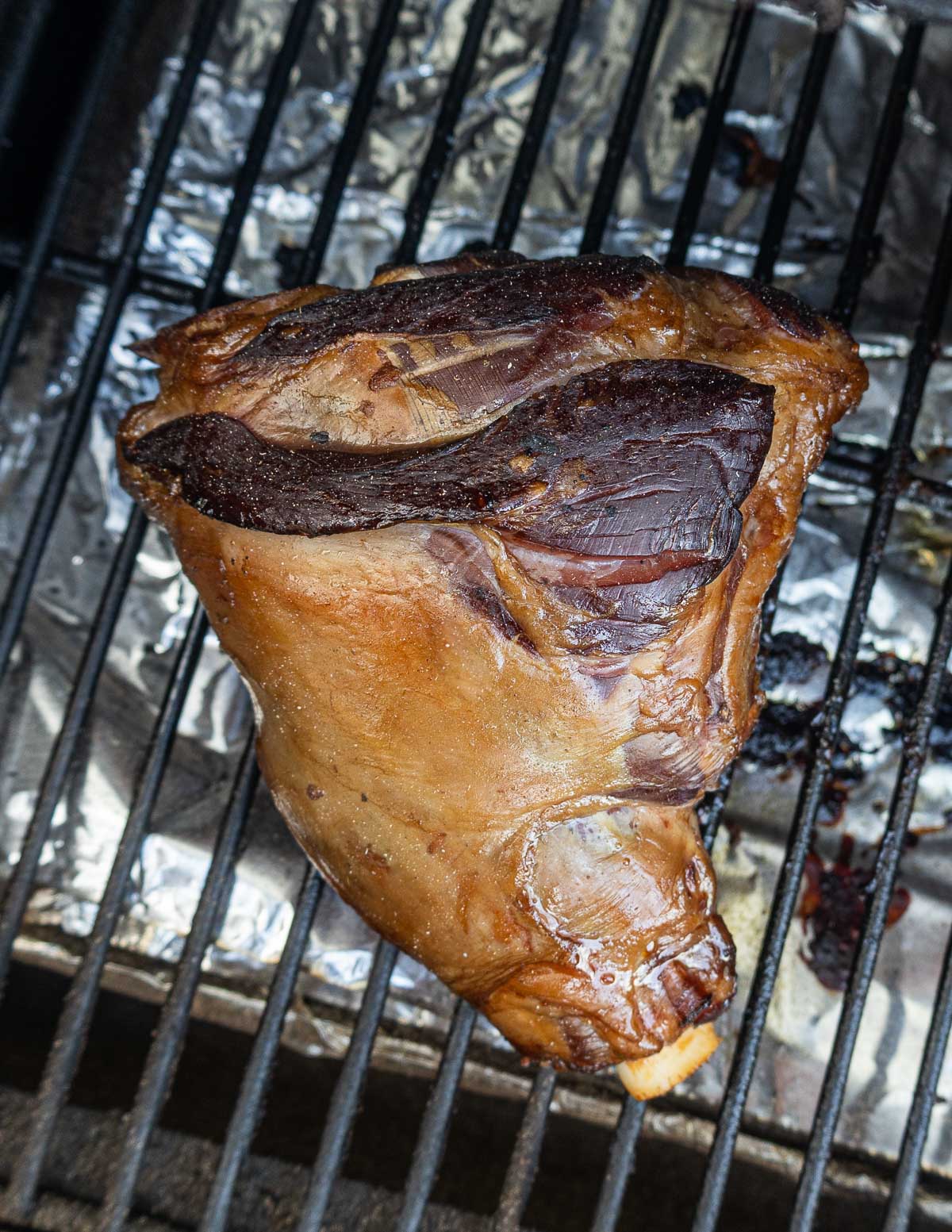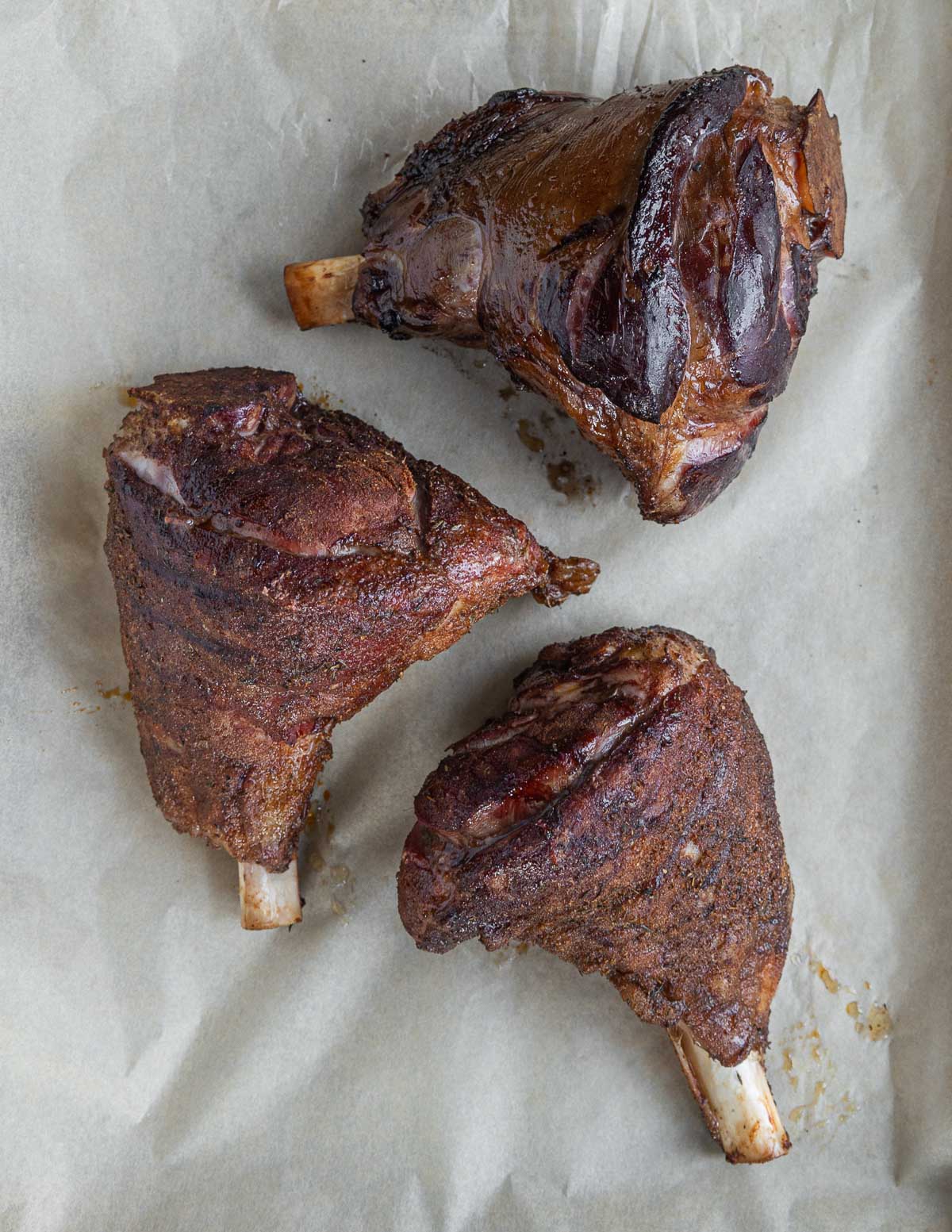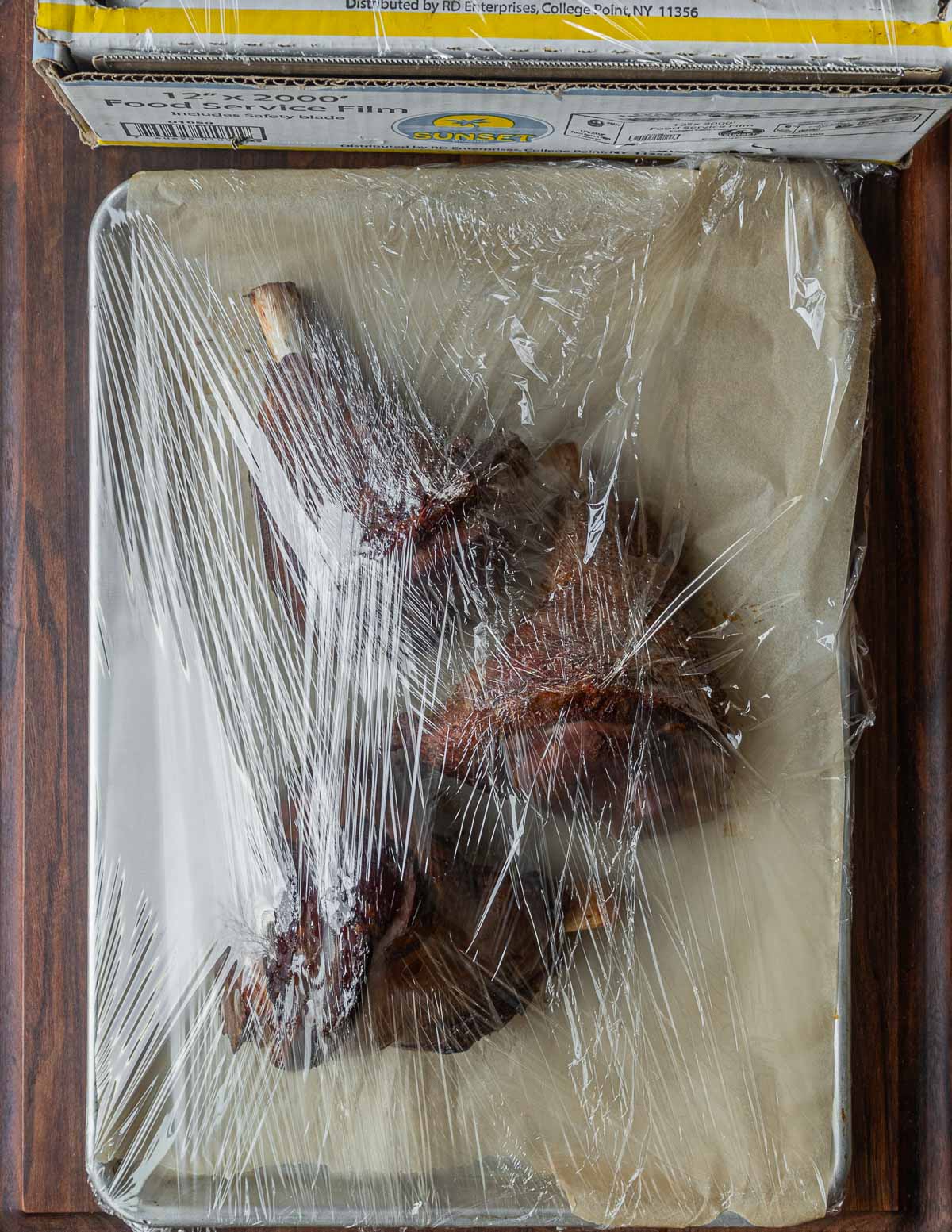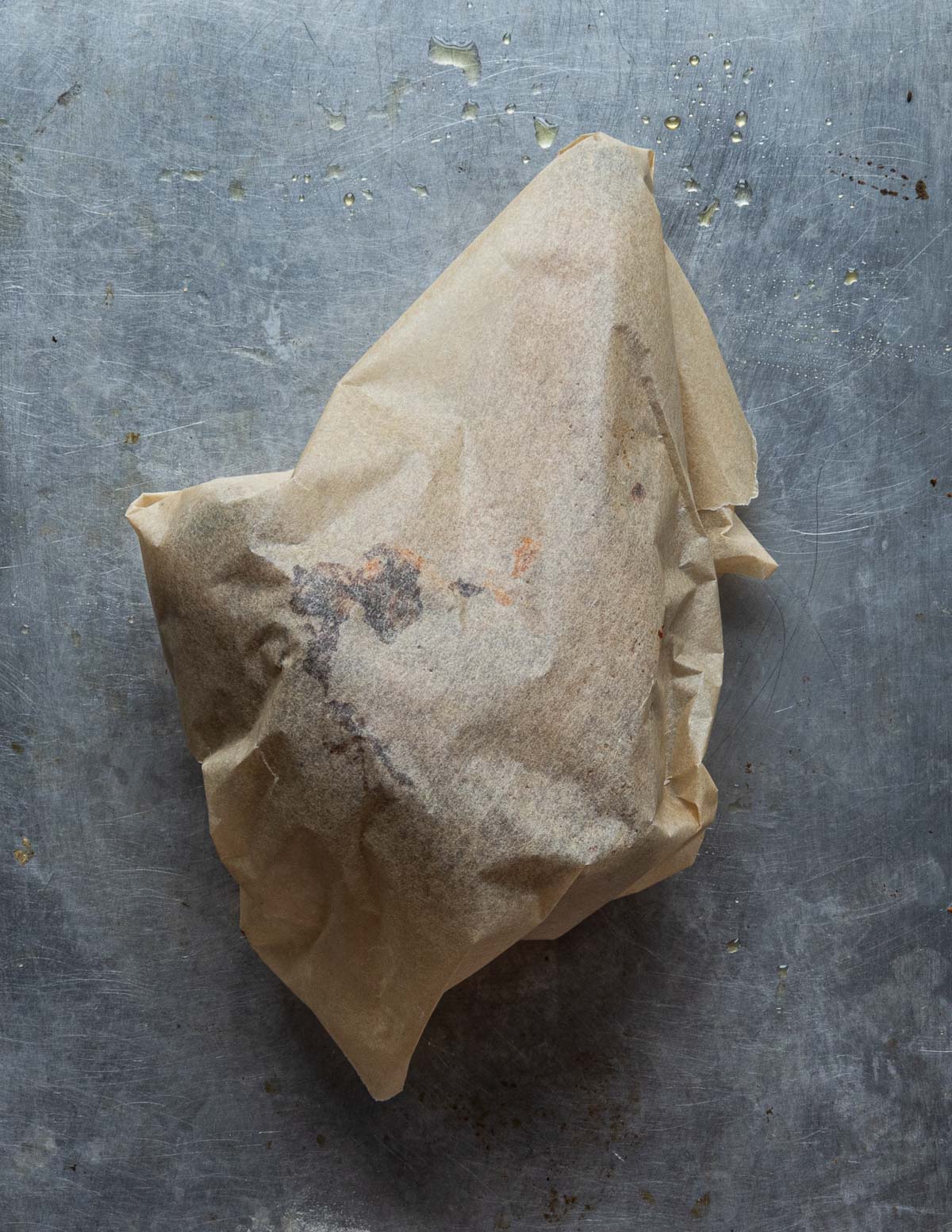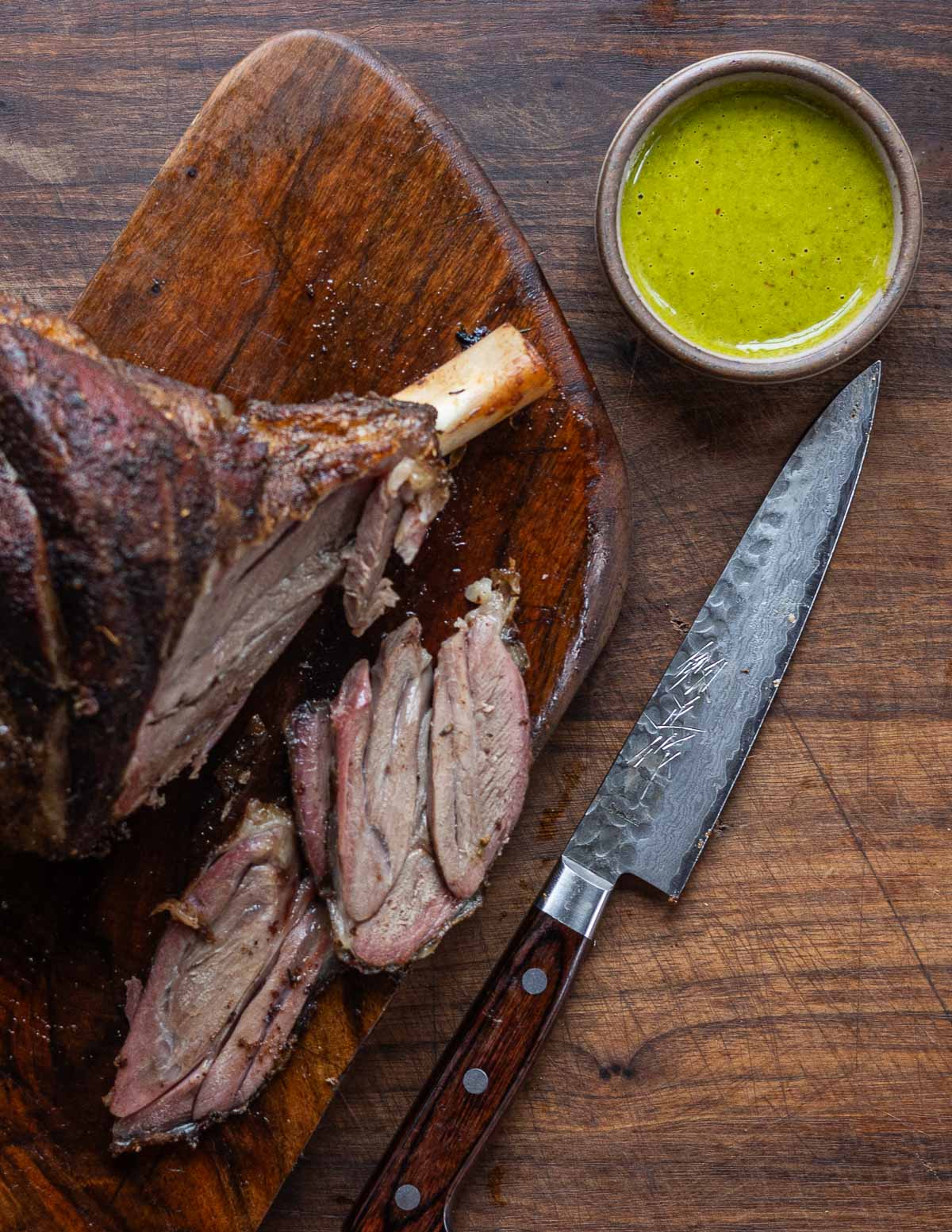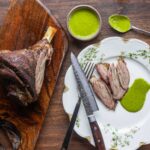Smoked Lamb Shanks
Smoked lamb shanks are a fantastic way to treat one of the best cuts of lamb, goat or venison. Depending on how they’re prepared they can be served whole as an entree, or used as a substitute for ham. Read on and I’ll explain what you need to know.
The most important thing to know about smoking lamb shanks is that you have two options: uncured and cured. Cured, shanks are heavily seasoned, take 5 days to cure in a brine and can be used in place of ham in recipes like split pea soup. Uncured shanks are simply seasoned with salt and pepper or a dry rub, herbs or other seasonings and smoked. An easy way to think of the differences is that cured shanks should be used where you would ham, and uncured shanks can be served by themselves like a roast, or braised like I do with Greek Lamb Shanks.
Step-by-Step
Whichever method you choose, the shanks will be smoked for the same amount of time: until they’re fully cooked or they reach an internal temperature of 150F. I’ll go over both methods of preparing the shanks below.
Uncured Shanks
Uncured shanks are the easiest. To make them all you need to do is season the meat with salt and pepper, then add any additional seasonings you like. In the images in this post I’ve used a dry rub I use on many smoked meats, but you can use your favorite seasoning blend, a mix of herbs, or whatever you like. After the meat is seasoned, it’s stored in the fridge overnight wrapped in cling film. If you have to you can smoke them right away, but the flavor is much better if they’re left for at least 8 hours.
Cured Shanks
The cured shanks require more time and effort and involve cooking a brine that must be chilled before adding the shanks. The key ingredient is pink salt (instacure no1). If you don’t have any it’s not the end of the world, but it will not taste the same. Pink salt can be purchased from your local butcher or online. Make sure you get instacure no1 and not no2 as they’re very different.
Smoking the Shanks
After the shanks are cured using either method they’re smoked at 275 F for 1.5-2 hours, or until cooked to an internal temperature of 150 F. From here the cured shanks can be frozen and pulled from the freezer when you want to make a soup or stew. The uncured shanks can be added to soup, or cooked as you would a roast to make an entree or main course.
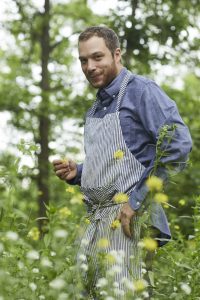
 This recipe is by James Beard award-winning Chef Alan Bergo, the Forager Chef. A chef from Minnesota, Alan is a culinary industry veteran, former chef of acclaimed Lucia’s Restaurant and the Salt Cellar. Author of The Forager Chef’s Book of Flora, he’s one of the most respected voices in the world of foraging and wild food. He’s best known as the founder of Forager Chef, his website focused on wild ingredients that reaches millions of readers each year. Learn more about Chef Alan and his hunt for mushrooms, wild and obscure foods at foragerchef.com.
This recipe is by James Beard award-winning Chef Alan Bergo, the Forager Chef. A chef from Minnesota, Alan is a culinary industry veteran, former chef of acclaimed Lucia’s Restaurant and the Salt Cellar. Author of The Forager Chef’s Book of Flora, he’s one of the most respected voices in the world of foraging and wild food. He’s best known as the founder of Forager Chef, his website focused on wild ingredients that reaches millions of readers each year. Learn more about Chef Alan and his hunt for mushrooms, wild and obscure foods at foragerchef.com.
Looking to buy lamb or goat online? Shepherd Song Farm: Grass to table. We raise lambs & goats traditionally, humanely and sustainably. 100% Grass Fed, Pasture Raised, Never Confined, no Hormones, Grains or Animal Byproducts. Born, raised and processed in the U.S.A. Good for you and good for the environment.
Serving Smoked Lamb Shanks
The cured shanks are perfect for making soups where ham could be used, think chowders, vegetables soups, and especially split pea.
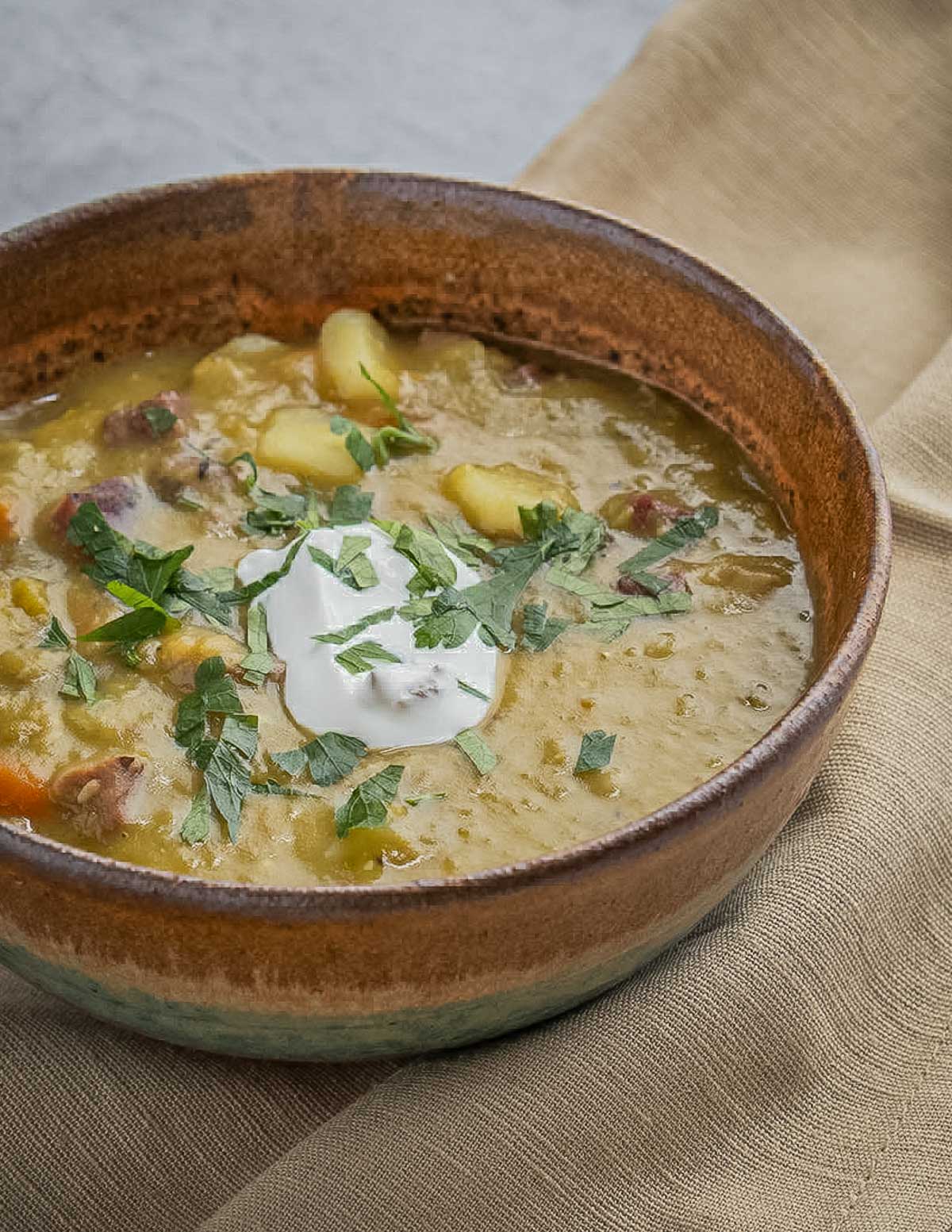
Uncured shanks are delicious served as an entree or carved like a roast. They need additional additional cooking to be tender, the best way to finish them is slowly in the oven wrapped in parchment.
Once the shanks are fork-tender they’re ready to serve, or they can be cooled and reheated. Whichever version you make, don’t forget to save the bones for soup and bone broth!
Related Posts
- Smoked Lamb Breast
- Smoked Boneless Leg of Lamb
- Smoked Lamb Shoulder
- Smoked Goat Stew with Sauerkraut
Smoked Lamb Shanks
Equipment
- 1 Smoker
- Parchment paper
- 1 meat thermometer optional
Ingredients
Lamb Shanks
- 2 Lamb shanks either back or foreshanks
- Kosher salt roughly 1 teaspoon per pound, to taste
Chili Dry Rub (optional-feel free to use your favorite spice blend)
- ¼ cup Ancho chili powder
- 3 T onion powder
- 1 tablespoon garlic powder
- 1 teaspoon cinnamon
- 1 teaspoon fresh ground black pepper
- 1/2 teaspoon cayenne pepper
Instructions
Dry brine the shanks
- Season the shanks all over with salt, then the dry rub. If you use my dry rub recipe you may have a little left over.
- Wrap the shanks in cling film and refrigerate overnight.
Smoke the shanks and bake to finish
- Preheat a smoker to 225F.
- Smoke the shanks until they reach 150 F internal temperature, or roughly 1 hour.
- Remove the shanks, wrap in parchment paper, and bake in a 250 F preheated oven for 2 hours, or until fork tender. Foreshanks will cook faster than backshanks, check on them at the 1.5 hour mark.
Serving
- Serve the shanks whole as an impressive entree or carve them like a roast. They're delicious served with a tart green sauce, or just a squeeze of lemon.
Video
Notes
To make cured shanks
Ingredients Brine (makes enough to cure about 4 shanks)- 1 gal water
- 3 oz pink salt (instacure no1)
- 3 tablespoons pickling spice
- 2 lbs sea salt
- 4 lbs brown sugar

